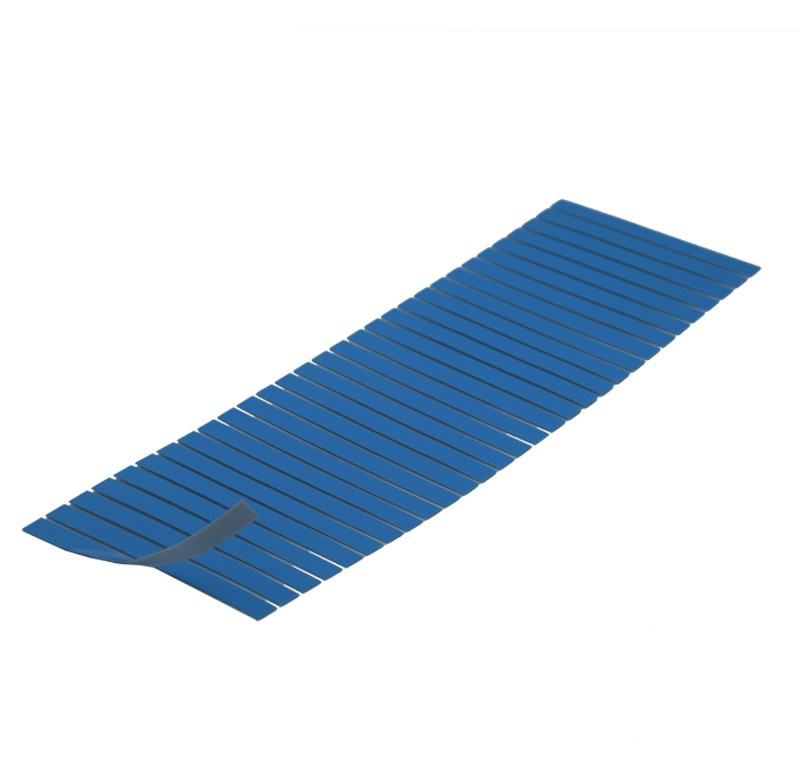As a kind of heat transfer medium, thermal conductive silicon film can well fill the gap between heat source radiator, form a good heat flow channel. It has become an indispensable material for heat dissipation applications in 5g communication, new energy vehicles, electronic power, network communication, semiconductor lighting other fields.
So how to choose apply a good thermal silicone pad? Please pay attention to the following aspects:
1. Thickness: in the early stage of structural design of electronic products, the position of thermal conductive silica gel pad shall be reserved for structural engineering, the principle of thin as possible shall be followed. The heat conduction silica gel pad has the advantages of thin thickness, low thermal resistance better heat transfer effect. The thickness of heat-conducting silica gel pad is different at different prices, but the thickness is the thicker the better, nor the thinner the better (the thickness is too thin, it is inconvenient to take install), but it should be selected according to the actual situation of its own products.
2. Thermal conductivity: to determine the thermal conductivity, factors such as chip power, heat value performance requirements shall be considered. For the general heat dissipation requirements, the heat conduction silica gel pad within 3W / MK can basically meet the requirements. However, if the heating power of the product is relatively high, it is recommended to choose a thermal conductive silica gel pad with a thermal conductivity of more than 5W / MK. Zhaoke can choose 1.5w/mk ~ 13w/mk!
3. Hardness compression capacity: the lower the hardness of the thermal conductive silicon film, the softer the product, the higher the compression ratio. It is suitable for use in low stress environment. On the contrary, the higher the hardness of the thermal conductive silicon film, the harder the product, the lower the compression ratio. When the thermal conductivity is the same, the products with low hardness have higher compression ratio, shorter thermal path, shorter heat transfer time better thermal conductivity.
4. Silicone oil content, toughness: if the thickness thermal conductivity are confirmed, the voltage resistance, fire rating, density silicone oil content of the thermal conductive silicone pad can be considered. Generally, the voltage resistance fire rating of the thermal conductive silica gel pad can basically meet all the needs of customers; for some precision applications such as optical lenses, which are sensitive to silicone oil, the silicone oil-free thermal conductive film is used, while some, such as UAVs electric vehicle batteries, have requirements for tear strength, which can be selected according to the specific use.



Telephone:13423468768 13620030210
Mail box:willson.xu@huiqitech.com
Address: Room 605, building 1,5 Ching Wai Wu Road, Tung Hang Town, Dongguan